
- Home
- Leadership
- HR
- The challenges of hiring teachers in ‘high-risk’ countries
The challenges of hiring teachers in ‘high-risk’ countries

For international schools recruitment of new teachers comes with the extra challenge of convincing someone not just to join your school but also that your host country is a great place to live and work in - fun, exciting and exotic, but, of course, also safe and stable.
For schools in countries that are full of international schools and are also popular tourist destinations, this is rarely an issue. But for schools in geopolitical hotspots or areas with the perception of high crime or terrorist threats, this is an added challenge to contend with.
Tes spoke with leaders in five such nations to hear about how their recruitment - and retention - is influenced by this, how they allay any concerns teachers may have and the positives their destinations offer that entice teachers to move across the world for a new challenge.
International school recruitment: reassuring applicants
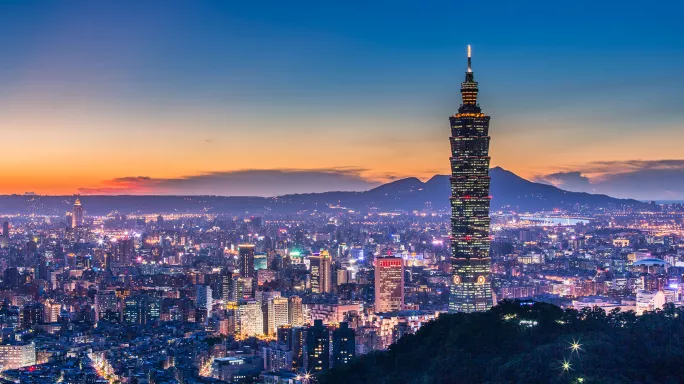
Taipei, Taiwan
Whenever China’s president, Xi Jinping, restates his commitment to “reunification” with Taiwan, it produces headlines around the world and revives fears of an invasion.
But according to John Nixon, CEO of Taipei European School, the local Taiwanese people have become so used to living with these tensions since 1949 that now they’re just part of the normalised hum of daily life.
However, for applicants for posts at the school, it can be “the elephant in the room during interviews”, and Nixon acknowledges that the timing of China’s announcements can sometimes be less than helpful.
‘‘A lot of tension gets ramped up and this is difficult when it coincides with a fresh recruitment cycle,” he says.
To tackle this, Nixon and his recruitment team have found it best to deal with the issue head-on from the earliest informal contact with prospective staff.
‘We emphasise that there’s currently no indication of any military build-up and every reason to believe that the status quo of peaceful coexistence is likely to continue for the foreseeable future,” he says.
“We point out that there are already so many well-established business and investment relationships between China and Taiwan that a peaceful resolution is just as likely.”
Nevertheless, should that situation suddenly change, the school retains close links with UK and EU representative offices in Taipei through which they could access consular services in an emergency.
Overall, though, Nixon says he finds it somewhat ironic when applicants raise concerns about Taiwan as a risky destination because, as the team at Taipei European School often point out to prospective staff, by most metrics Taipei is one of the safest cities in the world - a particular selling point to parents of teenage children.
‘‘Taipei is such a modernised, easy-to-navigate city,” he says.
“You don’t have to worry about knife or gun crime, for example. You can give teenagers a degree of independence here that wouldn’t be advisable in other major cities. They can use the underground and buses with their friends to explore the city freely.”
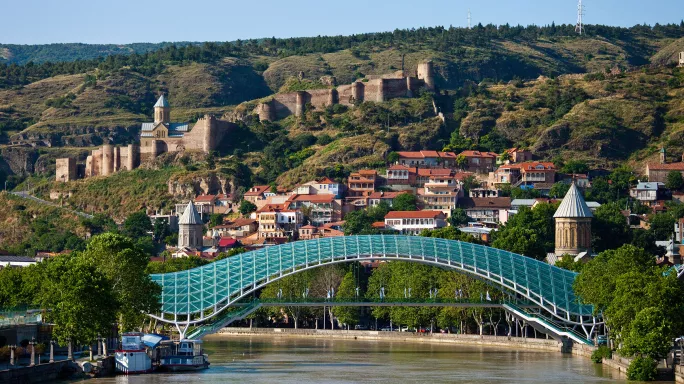
Tbilisi, Georgia
When Russian tanks rolled into Ukraine in February 2022, the shock was particularly intense in the 14 non-Nato member countries that border Russia.
But for Georgia, it was a particularly disturbing echo of the events of August 2008, when its armed forces were drawn into conflict with Russian-backed separatists in the self-proclaimed republics of South Ossetia and Abkhazia.
“It was feared that Georgia would be especially vulnerable to a similar attack,” says Stephen Priest. principal of the British International School of Tbilisi (BIST).
“It wouldn’t have been able to put up the same kind of defence as the Ukrainians because it’s such a small country. There was only so far it could retreat before fighting back.”
- Education in a war zone: a year in a Ukrainian school
- The view from Somaliland: the power of education
- The view from Mongolia: helping to train a nation’s teachers
He admits that for one staff member the situation was too much and they decided to leave the school.
However, since the early days of the Ukraine invasion, there has been a conscious decision to encourage staff to talk openly about their fears and anxieties. Priest says that openness has been crucial to the school’s 68-strong teaching workforce holding its collective nerve.
“We came to realise that the risks were not as high as initially feared, and more the kind of risk we can learn to live with,” he says.
In terms of ongoing recruitment, Priest’s leadership team has taken the decision to pre-empt staff concerns by tackling common misconceptions about the region from the first, informal preliminary discussions.
“We tend to raise the issues and talk about it as openly and honestly as possible. Sometimes people falsely think that Georgia is a post-Soviet failed state dominated by Russian mafia interests, which couldn’t be further from the truth,” he says.
“We make it clear that although the Georgian government is keen to maintain a non-antagonistic stance towards Russia, the Georgian people are very supportive of Ukraine and very vocal in their criticism of Putin’s regime.”
However, Priest acknowledges that the international teacher market is likely to remain “tight” for the foreseeable future; something he attributes to a general post-pandemic aversity to risk, with young teachers with families tending to seek work in more familiar settings slightly closer to home.
As such, ensuring that there are enticements to a destination - rather than just allaying concerns - is vital.
The school aims to do this in job adverts that not only cite perks such as an annual air ticket, full medical cover and a housing allowance but also the fact staff receive a $500 personal professional development allowance that they control and spend as they wish.
BIST’s location near a natural lake overlooking the city has also helped it to market itself as an ideal spot for outdoor pursuits like hill walking, canyoning and kayaking.
“Some applicants don’t necessarily know all that much about the region and are pleasantly surprised to find that Tbilisi is an up-and-coming tourist destination with such a quaint old quarter,” says Priest.
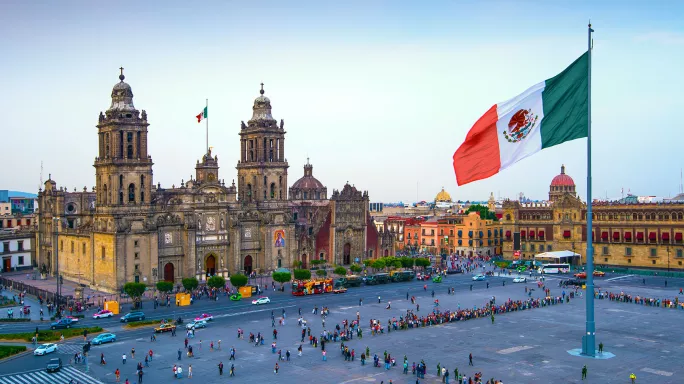
Mexico City, Mexico
Mexico can be perceived as a lawless country riven by drug-related violence - a perception that recent high-profile news stories will have only added to.
However, Tom Wingate, principal and founder of The Wingate School in Mexico City, says the vast majority of the fears people have are entirely misplaced.
“On one occasion I saw a street robbery with a gun and I once heard a shot in the night, but I’ve never encountered any personal violence and I’ve lived here the best part of 40 years,” he says.
For prospective new recruits, Wingate emphasises the fact that - contrary to opinion - the capital is actually the safest part of Mexico because the police and security services are so centralised there.
“Gang activity is much more obvious in ‘the countryside’, the border areas and the state of Michoacan. If you follow the basic commonsense advice that applies to most world capitals, you’ll be fine,’’ he says.
Of course, though, like all major cities, it has its share of problems.
For example, Mexico City has been plagued by the phenomenon referred to as “express kidnappings”, where a tourist hails down what appears to be a legitimate taxi only to subsequently find that the driver is a criminal intent on extorting them for as much cash as they can get.
To avoid such distressing experiences, new staff are given clear guidelines on how to safely get around and avoid such a situation and information on the different areas of the city and that are best avoided - at least at first.
“There are many different Mexicos and there are definitely some bad guys out there,” Wingate admits.
“Large districts like Iztapalapa and Ciudad Neza, on the outskirts of the city, are perceived as riskier because of gang-related activity. We impress on staff the importance of not frequenting areas alone and unknown to you in the evenings, for example.”
To further help staff, new starters are given rent-free accommodation when they arrive so they can find their bearings and take their time selecting a location to move to. They usually end up moving to where other staff are living.
Wingate explains how gratifying it is to see new staff gradually gain the confidence to push beyond that expat bubble and start to safely enjoy the rich and vibrant wider culture that Mexico City has to offer.
“The city has stunning colonial architecture and for those who venture into the wider country, its landscape ranges from snow-capped volcanoes down to vast canyons and steaming jungles,’ he says.
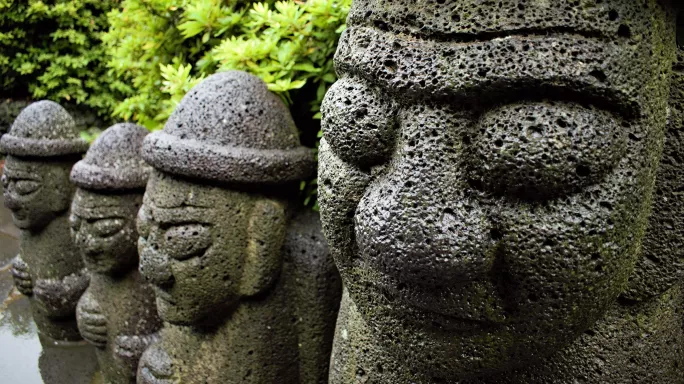
Jeju, South Korea
In South Korea the big concern lies just over the border in the form of its unruly neighbour North Korea.
With the two countries technically still at war, tensions always rise when the North conducts a rocket launch or its leader, Kim Jung-un, makes another verbal tirade against the West.
For North London Collegiate School (NLCS), which has a school in Jeju in South Korea, this can make recruitment and retention that bit harder, as Gwen Byrom, director of education strategy at NLCS, explains.
“When everything first kicked off with the Russia-Ukraine situation, we had some staff who were a little bit nervous about what the wider global implications would be because of the location of the school,” she says.
However, given that Jeju is actually south of mainland South Korea, it is not too big an issue.
“This may be because Jeju is a reasonable distance from the border and this gives some degree of comfort: it’s very rare that anyone cites it as a factor in their decision-making,” says Byrom.
She adds that “we don’t know who isn’t applying in the first place because of the geopolitics of the region” but says that if teachers are happy to move to the nation, the North versus South issue rarely comes up at interview.
In fact, the bigger issue is simple: the obscurity of Jeju compared with other more well-known locations.
“It’s seen as a bit of a leap into the unknown. If you say you’re going to Bangkok or Dubai, people know what to expect. But if you tell your friends you’re going to Jeju, it’s a place most people haven’t heard of,’’ says Byrom.
“Candidates often ask what life is like on the island. We takes pains to point out that if they’re familiar with places like Seoul, Jeju is very, very different. It’s quite rural and a very outdoors place.’
If teachers are interested in the move, though, there’s plenty to tempt them, from the fact the island is a Unesco World Heritage site to the raft of outdoor activities on offer.
“It’s really appealing for international teachers who are looking for the kind of outdoor life that you don’t get in very built-up cities. It appeals to people who love surfing and love being out in the mountains. It’s got very clean air and it’s a place where you can properly immerse yourself in Korean culture,” says Byrom.
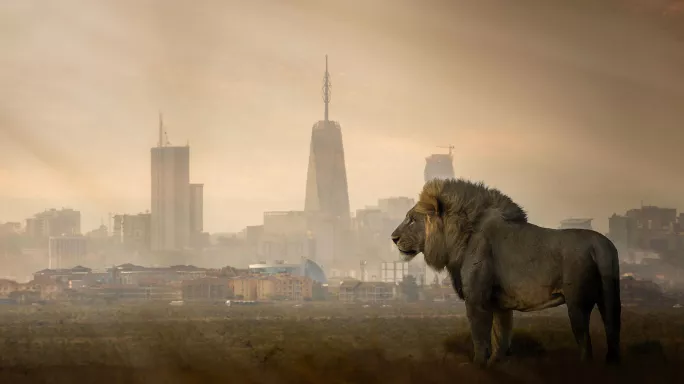
Nairobi, Kenya
Kenya is best known to many for its amazing wildlife and safari opportunities, beautiful beaches and a bustling, vibrant capital city.
However, sadly it has also been the target for several terrorist attacks over the years, notably on the American embassy in 1998, the Westgate shopping mall in 2013 and the Dusit hotel complex in 2019.
Joanna Garner, group primary education manager at Braeburn Schools, which has schools in the capital, admits that such incidents can have an impact on recruitment.
“The press around these events has resulted in a significant drop in foreign visitors to the country and may well impact teachers considering applying for jobs here,” she says.
And questions around security do come up at interview.
“Normally, it is the people with children who are more curious about this and/or single ladies,” Garner says.
The school can usually assuage concerns by explaining about the security measures that are in place at the school and residences, such as security guards, gates, panic buttons and live CCTV being monitored throughout the school day.
Furthermore, any staff lucky “will be given an orientation of the area and things to ensure their safety”.
This can help not just to offset any fears around terrorism but also more day-to-day concerns around crimes such as muggings, which although rare, are something staff need to be mindful of.
“Muggings can happen (usually phones) if you choose to walk along the road and do not have your wits about you. Normally it can be people on motorbikes who may see an opportunity and take advantage,” Garner says.
“Expatriate staff sometimes need to be sensitised to understanding the income gaps here, which may make them victims of different types of crimes, such as being conned or petty theft.”
If anything does happen, the school also has policies in place to ensure that staff receive help, such as being taken to the police to make a statement and access to counselling.
This access to counselling was something the school learned the importance of after the 2013 attack.
“The Westgate attack had a big impact on our staff (and families in the school),” says Garner. “A lot of our staff felt very vulnerable and needed extra support and so we offered counselling sessions.”
She says this ensures that those with the credentials to help staff are on hand, rather than teachers or senior leaders trying to do this.
“Encouraging staff to talk and be open about how they are feeling is good, but it needs to be done carefully and with specialist support to ensure we don’t make the situation worse, Garner explains.
Despite these concerns, she says most teachers tend to stay beyond their two-year contracts, thanks to both the buzz of Nairobi itself and the incredible countryside.
“[Nairobi] has a great nightlife with really good restaurants [and] it is easy enough to get around Nairobi in your own car or using Ubers,” she says.
“A lot of people also enjoy getting out of Nairobi for the weekend for short safaris, and camping, hiking, mountain climbing, cycling and sailing are all easily accessible.”
Sean Smith is a freelance journalist. He tweets @seansmithwrites
You need a Tes subscription to read this article
Subscribe now to read this article and get other subscriber-only content:
- Unlimited access to all Tes magazine content
- Exclusive subscriber-only stories
- Award-winning email newsletters
- Unlimited access to all Tes magazine content
- Exclusive subscriber-only stories
- Award-winning email newsletters
You need a subscription to read this article
Subscribe now to read this article and get other subscriber-only content, including:
- Unlimited access to all Tes magazine content
- Exclusive subscriber-only stories
- Award-winning email newsletters
- Unlimited access to all Tes magazine content
- Exclusive subscriber-only stories
- Award-winning email newsletters



